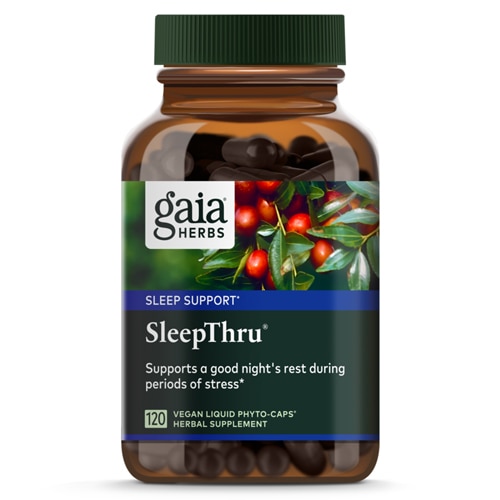It’s a common misconception that
sleep doesn’t have as much of an impact on our health as stress, movement and nutrition. But the reality is that sleep is critically important for our well-being.
Lack of sleep over long periods of time has been associated with increased risk of injury, decreased immune system response, increased risk of stroke and heart disease, increased feelings of hunger, headaches, increased risk of certain types of cancer, low energy levels and increased risk of obesity.
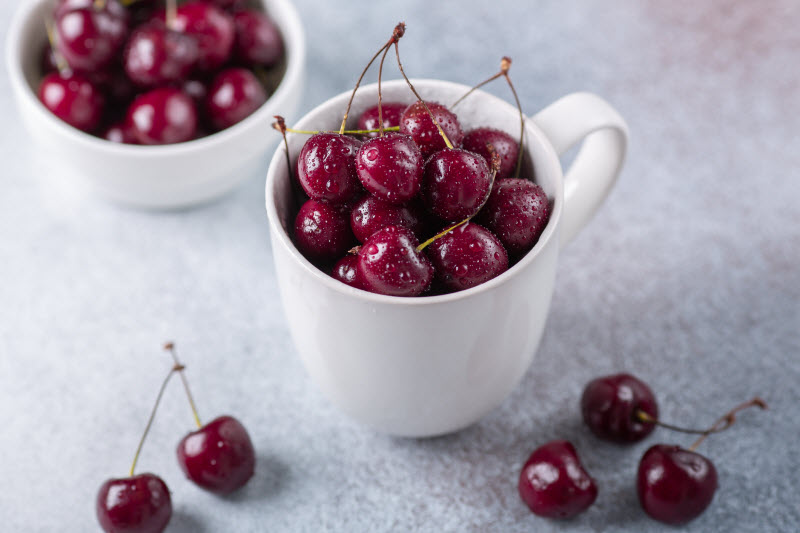
Most Americans do not get
enough sleep. It’s recommended that adults get at least
7 to 9 hours a night. When we get a good night’s sleep, it helps our bodies to rest and repair, improves our mood and improves our energy levels. Sleep expert and professor of neuroscience and psychology Matthew Walker has said, “The physical and mental impairments caused by one night of bad sleep dwarf those caused by an equivalent absence of food or exercise.”
Besides practicing good
sleep hygiene (such as following a routine sleep schedule and limiting caffeine consumption late in the day), there are a number of foods you can eat to improve daily sleep. Consider adding these nutritious picks to your weekly menu, and you can rest assured you’re taking the right steps to promote better slumber.
5 Good Foods for Sleep
 1. Cherries
1. Cherries
Cherries – specifically
tart cherries – are known for supporting healthy sleep, in part due to their natural melatonin content. Cherries are naturally fat free, sodium free, cholesterol free, low in calories and a good source of vitamin C. Tart cherries are readily available fresh, frozen, canned or juiced. Try some blended into a sweet
Cherry-Hemp Smoothie, mix
Tart Cherry Juice Concentrate into a glass of lemonade or spread some
tart cherry butter on your morning toast.
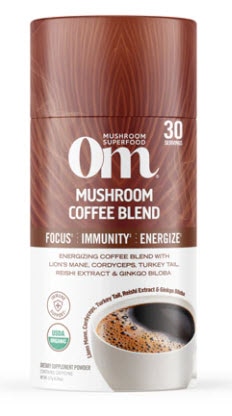 2. Mushrooms
2. Mushrooms
Mushrooms are a great addition to any diet, delivering a host of beneficial nutrients, including a nice boost of vitamin D. Vitamin D has been shown to
help improve sleep patterns. Mushrooms can be found fresh, canned or dried.
Canned mushrooms (especially low-sodium varieties) are a good pantry staple to keep on hand for quick, nutritious meals. But don’t stop at just tossing them into salads! Think outside the box and serve some creative main course mushroom dishes like
Mushroom & Zucchini Tacos or
Vegetarian Mushroom-Bean Chili. You might even try drinking
mushroom coffee!
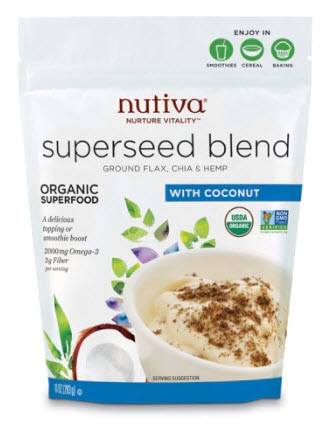 3. Nuts and seeds
3. Nuts and seeds
Melatonin, magnesium and zinc are a few nutrients found in
nuts and seeds that help improve sleep. It is important to focus on variety in order to reap the benefits offered by different types of nuts and seeds.
Pistachios, almonds,
walnuts, sunflower seeds, cashews,
flax seeds and
pumpkin seeds are all great choices. Nuts and seeds can be stored at room temperature, refrigerated or frozen depending on how long it takes you to eat them. Nuts and seeds are typically eaten raw, but you can easily incorporate them into meals like this
Pear and Walnut Flatbread with Gorgonzola, Arugula and Balsamic Glaze recipe or this
Vegetarian Lasagna with Walnut “Meat” Sauce.
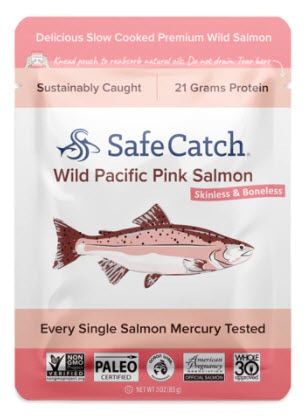 4. Fatty fish
4. Fatty fish
Like mushrooms, fatty fish supplies vitamin D to support improved sleep. Fatty fish also contains heart-healthy fats known as
omega-3 fatty acids which play a part in serotonin regulation. Variety also is important when consuming fatty fish. Considering rotating salmon, tuna, sardines and cod on your menu, and look for fresh, frozen, smoked, or
canned fish options. Get started tonight with this
Pistachio Herb Crusted Salmon recipe or these easy
Keto Salmon Cucumber Rolls.
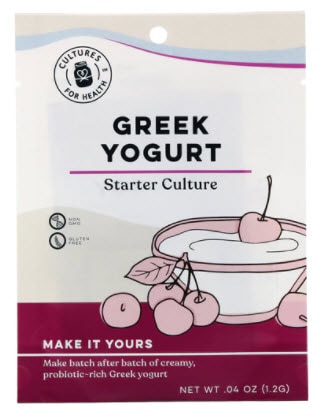 5. Dairy foods
5. Dairy foods
Milk, Greek yogurt and other dairy products contain vitamin D and the amino acid tryptophan, which have been shown to promote healthy sleep. Plus, they offer the added benefits of protein and calcium. Dairy is a quick grab for a nutrient-dense snack, and it can be easily added to many meals. Combine it with fruits and vegetables with this
Greek Yogurt Dip with Onion, Garlic and Chives recipe or enjoy a tasty treat with this
Lemon-Blueberry Yogurt Bark.
In all, it’s important to eat a varied diet rich in fruits, vegetables, whole grains (popcorn, whole wheat options, oatmeal and brown rice), lean protein (heart healthy fish, chicken, nuts and seeds, and beans), heart-healthy fats (avocados, nuts and seeds, fish and olive oil), and water for our overall health and sleep patterns.
Remember that caffeine and alcohol can hinder sleep cycles, so limiting these can help to improve your sleep. The temperature of the room also plays a part; keeping your bedroom cooler is known to help you to sleep through the night. Decreasing screen time (phones, TVs and computers), getting more natural light, and sticking to a bedtime routine also all have a positive impact on sleep.
If you need help getting started with better sleep hygiene, first think to yourself “what am I willing to try that fits me individually?”. Start there with one small step or goal. It only takes that first step to start working on getting better Zzzzs.
 Most Americans do not get enough sleep. It’s recommended that adults get at least 7 to 9 hours a night. When we get a good night’s sleep, it helps our bodies to rest and repair, improves our mood and improves our energy levels. Sleep expert and professor of neuroscience and psychology Matthew Walker has said, “The physical and mental impairments caused by one night of bad sleep dwarf those caused by an equivalent absence of food or exercise.”
Besides practicing good sleep hygiene (such as following a routine sleep schedule and limiting caffeine consumption late in the day), there are a number of foods you can eat to improve daily sleep. Consider adding these nutritious picks to your weekly menu, and you can rest assured you’re taking the right steps to promote better slumber.
Most Americans do not get enough sleep. It’s recommended that adults get at least 7 to 9 hours a night. When we get a good night’s sleep, it helps our bodies to rest and repair, improves our mood and improves our energy levels. Sleep expert and professor of neuroscience and psychology Matthew Walker has said, “The physical and mental impairments caused by one night of bad sleep dwarf those caused by an equivalent absence of food or exercise.”
Besides practicing good sleep hygiene (such as following a routine sleep schedule and limiting caffeine consumption late in the day), there are a number of foods you can eat to improve daily sleep. Consider adding these nutritious picks to your weekly menu, and you can rest assured you’re taking the right steps to promote better slumber.



